Best Acoustic Guitar Strings for all Gauges & Playing Styles
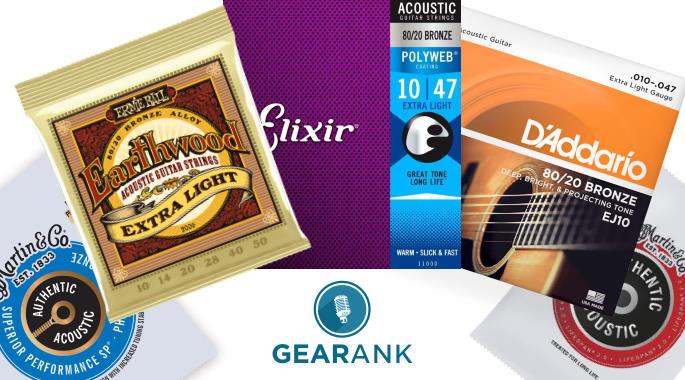
Author & Contributors
Alexander Briones
I have been writing about and researching music gear for many years, all while serving as a music director at my local church. I engage in guitar playing and singer-songwriter stints, in addition to mentoring young musicians and teaching guitar and bass.
Author's Pick
This is a non-standard set of strings that I'm currently using on my Martin OMCPA4. You might find it interesting if you'd like to try something different from the standard gauges featured in the rest of this guide.
GHS BB20X Extra Light
Cons
- Lacks bass and can be too trebly for some
- Needs a bit of tweaking to sound fuller when plugged-in
- Because of its thin gauge, fretting or hitting the strings too hard can cause fret buzz or intonation issues
Pros
- Smooth and relaxed playing feel
- Bright voicing, with clear and focused tone
- Stays in tune with good intonation even after weeks of use
- Reasonably good longevity
- Good packaging
This is an extra-light 11-50 gauge set, which is lighter than the 12-54 gauge sets that I'm used to. It has a combination of 80 copper and 20 zinc (percent) alloy windings that shape its bright voicing. It also has a hex core that come standard with many strings.
I'm quite pleased with its smoother and lighter playing feel. I also find its quality and tone to be on par with what I'm used to, albeit with a different trebly flavor.
As the label implies, this is a bright sounding set, and while it bothered me at first, I have grown to appreciate its distinct voicing. It may not sound as full as gauge 12 sets, but I like how each string rings with clarity and definition. Chords and solo lines sound noticeably clearer. They have more fidelity, which makes practice, recording and playing solo more enjoyable
On the flip side, I notice that my plugged-in tone is thinner, and easily drowned out when playing with a band. Thankfully, I am able to shave off some of the highs by tweaking the tone settings on my Martin's preamp system. And I ended up liking the result, because I still get the benefit of clarity and focused tone, with less of the unwanted high frequency zing. And since it doesn't have much bass, it also interferes less with the bassist. Still, the bright tonality of this set is more of an acquired taste, especially for those like me who are used to warmer sounding acoustics.
Compared to the 12's that I'm used to, the GHS BB20X is noticeably easier to play. Techniques like bending, sliding, hammer-on and pull-offs are easier to do, even more so when playing simple chords and single line notes. This relaxed playing feel is the main reason why I will most probably continue using this set on my Martin. Due to its lighter playing feel, strumming, plucking and fretting too hard on the strings may cause unwanted buzzing. Sometimes even intonation issues. To avoid these, I had to be more conscious of my playing intensity and avoid going all out.
In my experience, the GHS BB20X still sounds crisp and fresh after over 3 weeks of use, and this is quite a feat given that this is a non-coated set.
Thanks to the pro setup by my trusted luthier, I never had intonation and tuning stability issues. But if you're inexperienced at string installation and setup, then it is normal to encounter tuning issues. Even more so right after installation, when strings have not yet stretched enough. As they get more corroded, the strings will have intonation problems, especially at the higher frets. This is my cue to swap out the old strings.
If you aren't into trebly tone, and you can't be bothered to tweak your plugged-in sound, then this may not be for you. While I'm not totally sold to its bright voicing, I'm able to get good clear tones with some tweaking. The clarity and fidelity of this set, and more importantly, its easy playability, are good enough reasons for me to give it my thumbs up.
Specifications
- Gauge: Extra Light (.011, .014, .022, .030, .038, .050)
- Core Material: Steel
- Winding Material: 80/20 Bronze
- Winding Type: Round Wound
- Coated: No
| Website | Source | *Rating Value |
| Gearank | Alexander Briones | 90/100 |
Best Extra Light Acoustic Guitar Strings
For this section we considered sets of strings ranging in gauge from .010 to .047/.050.
Martin M170 Originals 80/20 Bronze Extra Light
Cons
- Less bottom end
Pros
- Clear and bright voicing
- Articulate and responsive
- Comfortable playability
- Reliable and consistent quality
Established back in 1833, C.F. Martin & Co. has a long illustrious legacy of building acoustic guitars with industry leading quality. They have since expanded into manufacturing a variety of acoustic guitar strings. And they've been getting good acclaim, using their long history of guitar building as leverage. The M170 Extra Light is a great example, combining Martin's old school woody tone with the comfortable feel of an extra light gauge set.
This is an 80/20 bronze acoustic guitar strings that has a clean and slightly trebly tone. This means that articulation and response is really good, albeit with less bottom end. This is great for those who need a cutting tone for emphasizing phrases and melodic lines. This set can also help tame the excess low end of big bodied acoustics.
These strings underwent Martin's quality control. So you can be sure that they feel and sound fresh when you get them, and they stay that way for a long time. And being a naturally bright sounding set, you won't notice much difference as the strings age.
All things considered, Martin is a brand that you can depend on. If you're looking for an easy to play set with Martin's voicing and brand backing, then this is it.
Specifications
- Gauge: Extra Light (.010, .014, .023, .030, .039, .047)
- Core Material: Steel
- Winding Material: 80/20 Bronze
- Winding Type: Round Wound
- Coated: No
| Website | Source | *Rating Value |
| YouTube | vincent ryan borres | 94/100 |
Best Light Acoustic Guitar Strings
For this section we considered sets of strings ranging in gauge from .011/.012 to .052/.054. This is the typical string gauge for acoustic guitars, widely preferred for its lesser tension and feel.
Elixir Strings Nanoweb Phosphor Bronze Light
Cons
- Not as trebly as other light gauge sets
Pros
- Long lasting strings
- Warm tone that's not typical of light gauge sets
- Stays fresh sounding and feeling for longer
- Easier to clean and maintain because of its resistance to grime and dirt
- Reliable Consistent quality
- Good packaging
Elixir was the company that pioneered coated strings, and even though many have followed suit, they are still the brand to beat. Even Taylor guitars took notice, which is why when you see their guitars at music stores, chances are they are strung with Elixirs.
Phosphor bronze acoustic guitar strings are known for their warm and full tone. And its innate warmth is enhanced by the coating used by Elixir.
The gauge also compliments its warmth, because even though the packaging says “light”, this set sounds pretty warm. And its fuller sounding warm tone makes it compatible with different musical genres.

But warmth is not the main reason why this set is successful. It's all about the coating's ability to keep the strings fresh sounding for much longer. It also helps that the coating gives it a smoother playing feel, while also reducing unwanted squeaks and fret noise.
Longevity is this set's best trait. The strings sound great many times longer than the competition. And its warm tonality allows it to work well in multiple musical genres.
If you want nothing less than the best rated light gauge acoustic guitar strings, then get the Elixir Nanoweb Phosphor Bronze Light.
Specifications
- Gauge: Light (.012, .016, .024, .032, .042, .053)
- Core Material: Steel
- Winding Material: Phosphor Bronze
- Winding Type: Round Wound
- Coated: Yes
| Website | Source | *Rating Value |
| Youtube | Guitar Player Magazine | 95/100 |
Best Medium Acoustic Guitar Strings
For this section we considered sets of strings ranging in gauge from .013 to .056.
Elixir Strings Nanoweb Phosphor Bronze Medium
Cons
- Thicker gauge means higher tension, not for those who want easy playability
Pros
- Lasts considerably longer than regular non-coated strings
- Clear, warm and fuller tone
- Improved resonance and sustain courtesy of its thicker gauge
- Quieter and smoother feel
- Reliable and consistent quality
- Good packaging
The Elixir Strings Nanoweb Phosphor Bronze Medium is a medium gauge coated set. It follows the same specifications as other Nanoweb strings, including the type of coating used.
Because of its thicker gauge, this set is a bit louder and sounds warmer than its lighter counterpart. And it does so while having the same longevity afforded by the company's string coating technology.
Speaking of coating, the Nanoweb coat is thinner than Elixir's Polyweb coat, resulting in minor feel and tone differences. Nanoweb being thinner dampens the sound less, so they sound brighter than Polyweb sets. Elixir makes it clear that both sets provide the same protection from dirt and grime, which results in longer life for the strings.
This longevity is the main reason why Elixir strings are considered great value sets. It offsets their higher price compared to non-coated sets.
If you want a set of medium gauge acoustic strings that last long, then go for one that's made by the pioneers of string coating.
Specifications
- Gauge: Medium (.013, .017, .026, .035, .045, .056)
- Core Material: Steel
- Winding Material: Phosphor Bronze
- Winding Type: Round Wound
- Coated: Yes
| Website | Source | *Rating Value |
| Six String Acoustic | Nate | 90/100 |
Best Heavy Acoustic Guitar Strings
For this section we considered sets of strings ranging in gauge from 0.14 to .059/.060
D'Addario EJ18 PB Heavy
Cons
- Because of increased string tension, this set might damage smaller / light acoustics
- Stiff strings require extra fretting and playing effort
Pros
- Big and fat tone that can't be had with thinner strings
- Increased harmonic content, projection and resonance
- Well suited to down tuning and half-step down tuning
- Hard to break
- Reliable and consistent quality
- Good packaging
Heavy gauge is not as popular because they are harder to play. And they can damage the structure of guitars that are not designed for high string tension. Simply put, not all guitars will be able to handle them. So, it is best to first check with the manufacturer if your particular acoustic is compatible with heavy gauge sets.
Even with the negatives, there are still brave souls that go for heavy sets because of the extra projection and resonance they provide. You simply can't get the big and fat sound that this set provides from lighter gauge sets.
Experienced players know when and how to use this set, especially those who are into flat-picking and heavy strumming. The warmth, sustain and harmonics that you get from this set is worth the extra effort needed to play them.

You can alleviate some of the tension that this thick string set applies on your guitar by down tuning. Then utilize a capo to do first position chord shapes in standard tuning.
Coming from D'addario, the EJ18 is built to the same steel core and quality standards as their other popular string sets. It also ships with a corrosion resistant packaging.
If you're looking to make the most of your acoustic guitar in terms of tone, then this should be at the top of your list. Just make sure to first confirm your guitar is compatible.
Specifications
- Gauge: Heavy (.014, .018, .027, .039, .049, .059)
- Core Material: Steel
- Winding Material: Phosphor Bronze
- Winding Type: Round Wound
- Coated: No
Things to Consider When Buying Acoustic Guitar Strings
There’s a lot that goes into guitar strings, acoustic guitar strings especially. To figure out which strings are best for acoustic guitar, you need to understand how gauge and materials interact with your guitar to create your tone. You then have to balance your tone preferences with the playability you’re looking for. Lets clarify how these factors work in the sections below.
-
In this guide we’ve presented single sets of strings, but in most of cases these strings will be available in larger packs. When you buy larger packs you save a few bucks per set, with your savings increasing the more sets that are in the pack. So if you want to get good value out of acoustic guitar strings deals, you ought to go for bulk packages.
Most manufacturers sell three-set-packs. But some (with Ernie Ball being a notable example) produce packs with 10 sets of strings. You have to pay more for bulk packages, but you get better return for your money in the long run.
Since strings aren't aged rapidly through oxidation, you won’t have to worry about your strings going bad while they’re in the package. They’ll age a bit, but it’d take years before it was really noticeable. The main thing that will damage your strings are the oils on your fingers, particularly if you don't wipe down your strings after playing.
-
As you’ve probably noticed, manufacturers include words like “light", "medium", and "heavy” when they talk about their strings. This is referring to the gauge of the strings, or how thick they are.
Thicker strings are harder to press down and have a warmer sound, while thinner strings are easier to press down and have a brighter tone. Thicker strings are louder and perform better when strummed. Thinner strings are quieter and have a higher tendency to break when strummed forcefully.
Light gauge strings provide a good balance of tone and playability. This is the reason why they are considered as the best string gauge for acoustic, and the go-to gauge for most guitarists. Extra light gauge strings have lower string tension, which makes them much easier to play, but they tend to have a trebly sound. Their trebly sound may not be ideal for some, but their easy playability make them the best strings for acoustic guitar solos.
Below is a rough estimate for different gauges, including: extra-light, custom light, light, medium, and heavy. The sizes are organized from thinnest to thickest. One thing to keep in mind is that companies occasionally label the gauge of their strings relative to each other. So strings that one brand calls light another brand may call extra-light. Because of this, there’s some variance in how some brands classify different gauges.
Typical String Gauge for Acoustic Guitar from High E to Low E String E B G D A E Extra Light .010 .014 .023 .030 .039 .047 Custom Light .011 .014 .023 .032 .042 .052 Light .012 .016 .025 .032 .042 .054 Medium .013 .017 .026 .035 .045 .056 Heavy .014 .018 .027 .039 .049 .059 -
Below are the materials most commonly used in acoustic guitar strings. Different materials are used occasionally, but the four listed below encompass the vast majority of what you’re going to encounter.
-
Phosphor Bronze
Without getting too far into the technicalities, phosphor bronze is a bronze alloy. This is a combination of metals commonly used for guitar strings. These strings give a balanced tone with a warm low-end and a strong mid-range presence.
Phosphor bronze is the most commonly found string, which makes sense because they’re arguably the most versatile. There isn’t really a genre that these strings don’t perform well in, though 80/20 or silk and steel strings may be a better fit depending on your preferences.
-
80/20 Bronze (Also Called Brass)
80/20 bronze, which is also commonly called brass, is a lot brighter sounding than phosphor bronze. It has less of a bass presence, so your guitar will cut through a mix (be heard better in a band) better than it would if you were using phosphor bronze strings.
Our only word of caution is that if you play a guitar which already sounds trebly, 80/20 strings might not be the ideal fit for you. 80/20 strings can make some guitars sound thin, smaller guitars especially so. However, dreadnought sized instruments (if you’re not sure what this is, see our list of acoustic guitar sizes) usually don’t suffer from this. Another alternative are Nickel Bronze acoustic strings, they have less of the zing, and sounds warmer and fuller.
-
Silk and Steel
Silk and steel strings are steel acoustic guitar strings which are essentially the middle ground between a standard acoustic guitar string and a nylon string. They’re composed of three layers: a silver-plated bronze (or tin) alloy for the outer winding, a layer of nylon in the middle, and a thin wire in the center.
Silk and steel strings have a much more mellow tone than either phosphor bronze or 80/20. Because of their construction, they’re also significantly easier to fret because it takes less pressure to push down the strings. This is part of the reason why they’re popular with fingerstyle and folk guitarists. Unfortunately, they are not quite as popular as phosphor bronze or 80/20 strings.
Aside from these popular ones, manufacturers have utilized many different alloys. But they aren't as widely available. Thankfully, there are online platforms that offer them. Those who want something out of the ordinary will appreciate aluminum bronze acoustic guitar strings.
String material affects tone and playability dramatically. So many put a lot of weight on their preferred material when choosing which strings are best for acoustic guitar use.
-
-
Here is a simple coated acoustic guitar strings buying advice. When you hear people talk about “coated strings”, they’re talking about strings that are coated with a plastic-based polymer. This coating helps to increase the longevity of the strings. However, coated strings are also more expensive; generally twice the price of non-coated strings.
As a rough estimate they last twice as long - so you may not really be saving anything by going with coated strings. The main benefit though is you won’t have to Change Your Strings quite as often. Note that this is my personal experience, yours may be different.
The coatings used on strings also alters the tone. They generally cause a roll-off in the high-end response, resulting in a darker sound when compared to uncoated strings. In some cases this actually works out pretty well, as coated strings can tame the high-end in guitars that are too bright. Likewise, coated strings may not be a great choice for guitars that are darkly voiced. Though of course, this is all a matter of personal preference.
-
Because you can’t tweak your tone on an acoustic guitar to the extent that you can on an electric guitar, your choice in string is going to be a key element in your tone and the response of your instrument. It’s also a balancing act, because you have to weigh the tone you want against the tone of your guitar and how you play. This means that strings on acoustic guitar play a bigger role in the overall tone and feel of the instrument.
So the first question is: What do you play? If you’re a strummer, you may find that heavier strings work to your favor. You’ll get more volume and a warmer tone, which is great for accompanying vocals. If your style of playing involves melodic lead lines, you may find that medium gauge strings are the best combination of playability and volume. Finally, finger stylists generally prefer lighter gauge strings. The techniques used in the genre require more complex fretting, which can make higher gauges unmanageable. For a beginner, the softer feel of light gauge strings make the the best strings for acoustic guitar.
So, what about materials? Well, generally the livelier the genre you’re playing the brighter strings you’re going to want. So if you’re playing bluegrass for example, you may want to look at 80/20 bronze strings. On the other hand, if you play more mellow music you’ll get good results with phosphor bronze.
While your choice of string is going to vary based on how you play, your taste (which will change over time), and your guitar, here’s a quick reference table if you’re still not sure which type of string is going to work best for you.
Genre Gauge String Material Folk Medium to Heavy Phosphor Bronze or Silk and Steel Bluegrass / Country Light to Medium 80/20 Bronze/Brass Finger Style Extra-Light to Light Phosphor Bronze or Silk and Steel Jazz Medium to Heavy Phosphor Bronze Singer Songwriter / Misc Medium to Heavy Phosphor Bronze
Single Sets vs. Buying in Bulk
Acoustic Guitar String Gauges Explained
Most Commonly Used String Materials
Coated vs. Non-Coated
How To Match Your Strings to Your Playing Style
Best Acoustic Guitar String Selection Methodology
The first Edition was published in 2017. The current edition was published on April 19, 2023.
There are well over 1,000 different bundles of acoustic string sets available to buy online just in the USA, let alone the rest of the world. This simple fact makes this one of the most challenging music gear categories when it comes to providing professional guidance. In order to tame the massive numbers involved, we used a tight statistical sampling approach where we only short-listed string sets with very high ratings at a select group of leading online American retailers and only those with a comparatively large number of rating sources.
Our selection criteria included:
- Single sets for 6-string acoustic guitars - individual strings and sets for 12-string guitars were not included.
- Had to be designed for guitars with a standard register - EG: Baritone strings were excluded.
- Custom or mixed gauge sets were excluded.
- Had to be available from a major online retailer based in the USA.
This resulted in a manageable short-list representative of the most popular brands - some highly regarded but lesser known brands were therefore not included. You can browse most of strings we've rated in the Music Gear Database.
This edition's short-list included 38 sets of strings from the following brands: Cleartone, D'Addario, DR, Elixir, Ernie Ball, Fender, GHS, Godin, Ibanez, John Pearse and Martin. This entailed the collection and analysis of over 99,500 sources including ratings, reviews and forum discussions which we processed with the Gearank Algorithm to produce a rating score out of 100 for each short-listed set. We chose only the highest rated options to recommend in each of the following gauges: Extra Light, Light, Medium and Heavy.
Also featured in this guide is the Author's Pick section, which features excerpts from my full review of the GHS BB20X, which is the set that I am currently using.
For more information about our methods see How Gearank Works.
About the Author and Contributors
Here are the key people and sources involved in this guide's production - click on linked names for information about their music industry backgrounds.
Lead Author & Researcher
Alexander Briones
I have been writing about and researching music gear for many years, all while serving as a music director at my local church. I engage in guitar playing and singer-songwriter stints, in addition to mentoring young musicians and teaching guitar and bass.
I've owned many different types of acoustics, from parlors, to OMs, to dreadnoughts and even jumbos. And in stringing them, I've ended up trying a plethora of strings, including the various gauges, materials and brands. Interestingly, my experience with acoustic strings led me to a conclusion that's similar to market sentiment - that the best acoustic strings provide a good balance of playability and tone.
Contributors
Jason Horton: Editing and Illustrating.
Media
Main/Top Image: Created by Gearank.com using photographs of the Martin MA540, Ernie Ball 2006 Earthwood, Elixir Polyweb 80/20 Bronze Extra Light, D'Addario EJ10 and Martin Lifespan MA540T string sets.
The individual product images were sourced from websites, promotional materials or supporting documentation provided by their respective manufacturers.



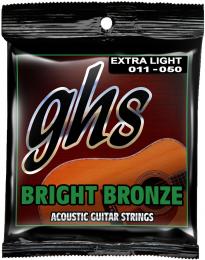


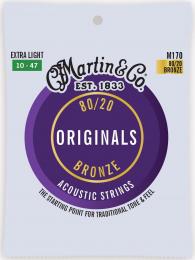
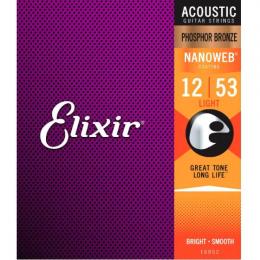
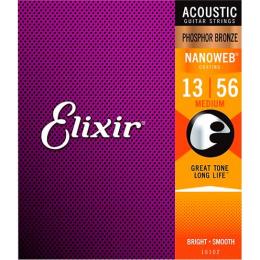
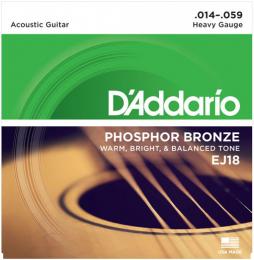


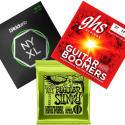
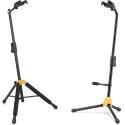
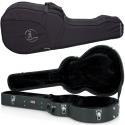
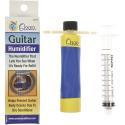
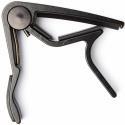
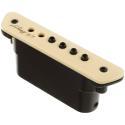
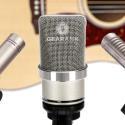
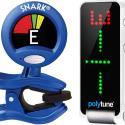
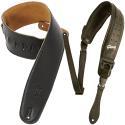
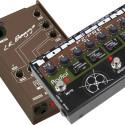
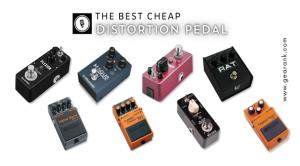
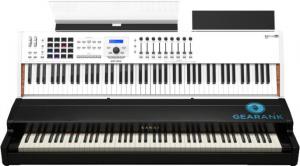
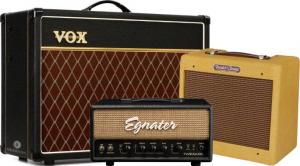
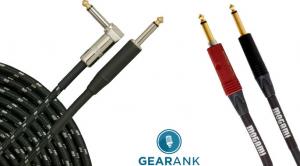
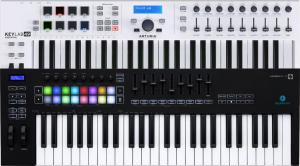
Comments
As a result of publishing our
Submitted by Jason Horton on
As a result of publishing our November 2022 Edition, the following sets of strings came off the recommended list above:
The following sets of strings
Submitted by Jason Horton on
The following sets of strings were removed from our recommended list when we published the June 2022 Edition:
Publication of our December
Submitted by Jason Horton on
Publication of our December 2021 Edition resulted in the following string set coming off the recommended list above: D'Addario EJ12.
Our February 2021 update
Submitted by Jason Horton on
Our February 2021 update resulted in the following sets of strings coming off the recommended list above:
The Gibson SAG-MB10
Submitted by Jason Horton on
The Gibson SAG-MB10 Masterbuilt Premium Phosphor Bronze Acoustic Guitar Strings have been removed from the recommended list above due to being discontinued.
The following sets of strings
Submitted by Jason Horton on
The following sets of strings came off our recommended list as a result of our February 2020 update:
The following set of strings
Submitted by Jason Horton on
The following set of strings has been removed due to being discontinued: Vibe Strings Light.
The following strings have
Submitted by Jason Horton on
The following strings have been removed from the recommended list above due to being discontinued:
The following have been
Submitted by Jason Horton on
The following have been removed from the recommended list above due to a lack of availability:
This article is about best
Submitted by vlado (not verified) on
This article is about best known strings or the best acoustic guitar strings? Thomastik Infeld strings anyone?
As mentioned in the Best
Submitted by Jason Horton on
As mentioned in the Best Acoustic Guitar Strings Selection Methodology section above we only put a set of strings on our short-list if they had both high ratings and a large number of ratings - so popularity did play much more of a role than it usually does in our guides.
Thomastik have made it onto short-lists for other types of strings and we have recommended them in our guide to The Best Bass Strings.